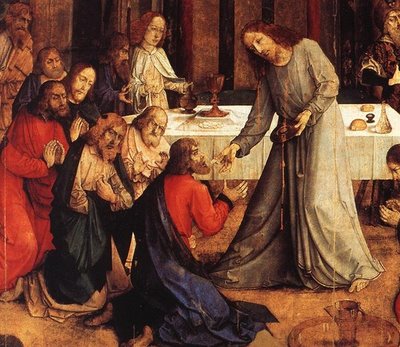
When kneeling was nearly a crime. A group of Catholics were arrested and charged with disturbing the peace for kneeling for Communion in 1985. This happened in Canada. How do you defend this???? And I mean the Bishop. The case was appealed to the highest court where it was eventually overturned.
Synopsis of the case:
The appellants are Roman Catholics who were charged, pursuant to s. 172(3) of the Criminal Code, with wilfully disturbing the order or solemnity of an assemblage of persons met for religious worship. The appellants opposed a change in the liturgy, approved by the Bishop, requiring communion to be received by parishioners while standing rather than kneeling as had been the previous practice. As a result of this liturgical change, there had been an ongoing dispute between appellants and their parish priest and other members of the congregation. A diocesan directive, describing in particular the manner communion was to be administered and received, was regularly read at services and twice during mass on the day in question. However, appellants attempted to receive communion in a kneeling position. Each was told by the priest to stand if he wished to receive it. After a few seconds, each one stood and, without having received communion, returned to his seat in an orderly manner. The trial judge convicted the accused, finding their actions hampered the spirituality of this part of the service, held up the communion lines briefly and created a degree of anxiety and tension which distracted the priests and some members of the congregation. Both the County Court and the Nova Scotia Supreme Court, Appellate Division, upheld the conviction
The link to the court documents is here. And ironically, aren't the bishops the ones now arguing that the civil law should have no jurisdiction over criminal cases involving sexually abusive priests. Strangely schizophrenic.
Thanks to the Cornell Society for a Good Time.

2 comments:
I'd be interested to know if Holy Communion has ever been denied to anyone who presented themselves in a state that was unfit for reception, other than a state of reverence. Does anyone know of such a case?
what I would like to know is if the liturgists who made the standing decree (and all the other decress that have destroyed the faith of millions of Catholics,) could be charged under the same statute.
If the judge convicted on the grounds that the protesters 'disrupted the spirituality' of the service, I think we could stand a good chance of getting almost the entire liturgical establishment of the modern Catholic Church behind bars.
what a thought!
Post a Comment